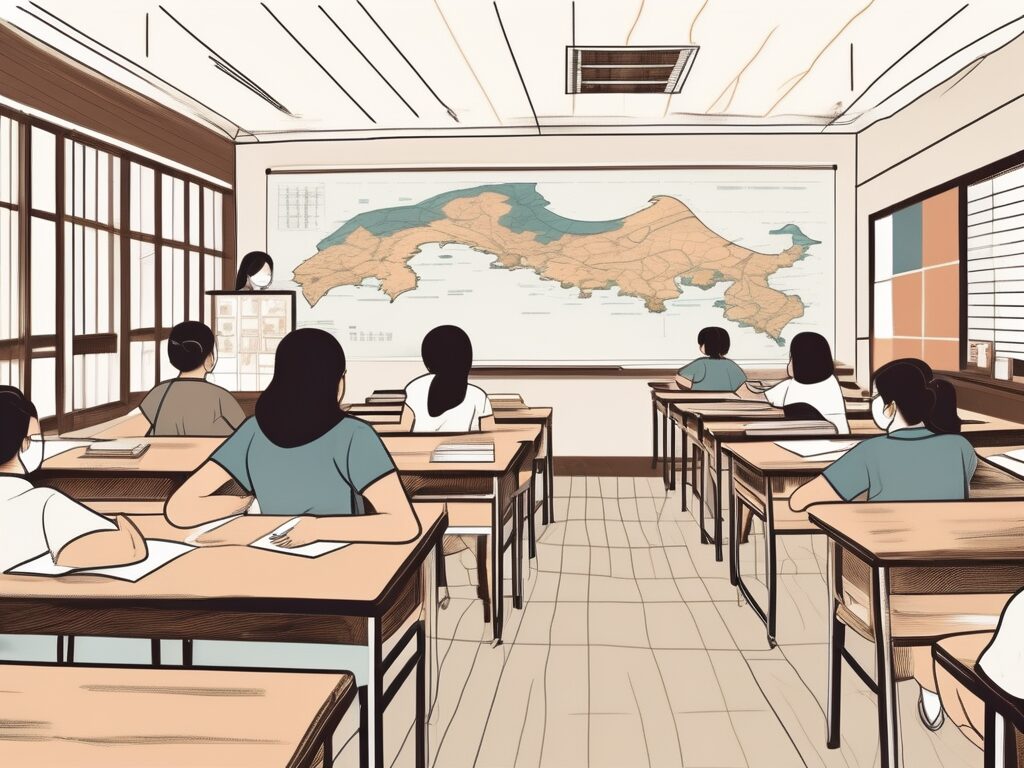Top 5 Challenges for International Teachers in Taiwan 2025
Taiwan is increasingly recognized as a premier destination for international educators, offering a unique blend of cultural richness, welcoming communities, and competitive remuneration. However, prospective teachers must be cognizant of the distinct challenges associated with teaching in this dynamic environment. This guide aims to elucidate these challenges and provide strategic insights for navigating the educational landscape in Taiwan.
1. Language Barrier
The language barrier presents a significant obstacle for international teachers in Taiwan. While English is part of the curriculum, Mandarin Chinese remains the predominant language of communication. This linguistic divide can complicate everyday tasks, such as shopping or seeking directions.
To mitigate this challenge, it is advisable for educators to engage in Mandarin language courses or utilize translation applications. Furthermore, the Taiwanese populace is generally known for its hospitality and willingness to assist, which can facilitate smoother interactions.
Teaching English in a Non-English Speaking Context
Instructing English in a predominantly non-English speaking environment necessitates a tailored pedagogical approach. Educators must employ a variety of instructional strategies, including visual aids, gestures, and repetitive reinforcement, to enhance comprehension among students.
It is essential to focus not only on grammar and vocabulary but also on fostering students’ confidence in utilizing English in practical scenarios. Incorporating role-playing exercises, collaborative discussions, and interactive methodologies can significantly enrich the learning experience.
2. Cultural Differences
International teachers must navigate the intricate cultural landscape of Taiwan, which is deeply influenced by Confucian principles emphasizing respect for authority and relational harmony. This cultural framework often manifests in classrooms where students may hesitate to challenge their teachers or voice their opinions.
To cultivate effective relationships with students and colleagues, it is imperative to understand and respect these cultural dynamics. Additionally, educators should remain open-minded and adaptable to prevent potential misunderstandings arising from cultural differences.
Adjusting to Taiwanese Educational Culture
Adapting to the Taiwanese educational system can pose challenges for international teachers. Taiwanese institutions typically feature longer school hours and a pronounced focus on academic performance, which can create a high-pressure environment for both educators and students.
Nevertheless, it is important to recognize that Taiwanese schools also prioritize extracurricular activities, providing opportunities for teachers to engage with students beyond the classroom setting, whether through sports, arts, or various clubs.
3. Visa and Work Permit Complications
The process of securing a work visa and permit in Taiwan can be intricate and time-consuming. International teachers must prepare a range of documentation, including a criminal background check, health verification, and proof of teaching qualifications. Additionally, regulatory requirements may change unexpectedly, complicating the process further.
Despite these hurdles, many educators successfully navigate the visa application process through meticulous organization, patience, and proactive engagement. Collaborating with a reputable recruitment agency can also provide valuable guidance throughout this procedure.
Understanding Taiwanese Employment Regulations
A comprehensive understanding of Taiwanese employment laws is essential for international teachers. These regulations encompass critical aspects such as working hours, holiday entitlements, and contract termination procedures. However, the legal framework can be complex and challenging to interpret, particularly for those unfamiliar with legal terminology.
Engaging with a reputable recruitment agency can be beneficial, as they can clarify these laws in accessible language and ensure that educators are well-informed of their rights and responsibilities within the Taiwanese educational system.
4. Academic Standards and Teaching Philosophies
International teachers must also consider the academic standards and teaching philosophies prevalent in Taiwanese schools. Institutions may vary significantly in their educational approaches, curriculum design, and assessment methods. It is crucial for educators to align their teaching strategies with the specific expectations of their respective schools.
Researching schools’ accreditation status and educational philosophies can provide insights into their commitment to academic excellence and student development. This information is vital for making informed decisions regarding employment opportunities.
5. Facilities and Resources
The quality of facilities and resources available in Taiwanese schools can significantly impact the teaching and learning experience. International teachers should assess the availability of modern teaching aids, technology, and extracurricular resources when evaluating potential schools.
Access to well-equipped classrooms, libraries, and recreational facilities can enhance the overall educational environment, contributing to both teacher satisfaction and student engagement.
Conclusion
Teaching in Taiwan offers a wealth of opportunities for personal and professional growth. However, it is essential to acknowledge and prepare for the challenges that accompany this experience. From overcoming language barriers and cultural differences to navigating visa complexities and understanding employment laws, international teachers must be equipped with the right strategies and resources.
By approaching these challenges with a proactive mindset and seeking support from established networks, educators can transform potential obstacles into valuable learning experiences. Embrace the journey and leverage the opportunities that teaching in Taiwan presents.
Elevate Your Teaching Career in Taiwan with IPGCE
Are you ready to turn the challenges of teaching in Taiwan into stepping stones for professional advancement? Join IPGCE, the UK’s leading Teacher Training Course, and acquire the qualifications necessary to excel in the competitive international education market. Our International Postgraduate Certificate in Education will enhance your employability by 50%, unlocking pathways for career progression and salary enhancements. Connect with a global network of educators, deepen your understanding of international curricula, and pursue your professional development without compromising your current commitments. Do not let insufficient credentials or isolation hinder your teaching journey in Taiwan. Enroll in our iPGCE program today and pave the way for a successful international teaching career.

